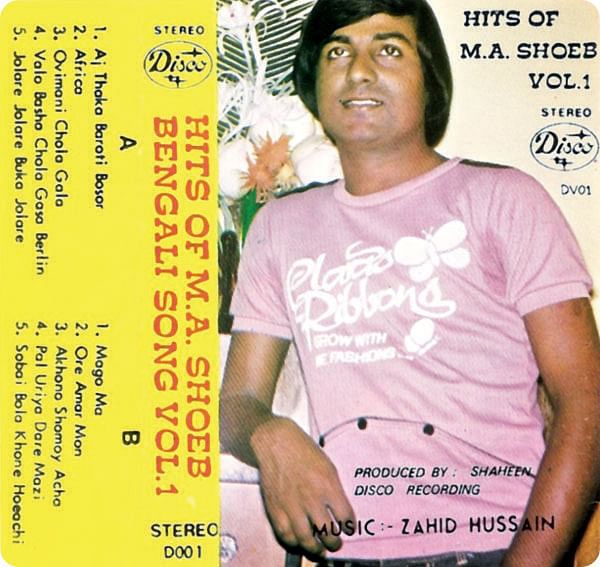M. A. SHOEB Pioneer of Album Culture in Bangladesh

Young generation may have to Google to find the pioneer of Bangla modern song M.A. Shoeb of the 1980s. His album, 'Best of M. A. Shoeb' released in 1981 on audio tape, was the first album of any Bangladeshi singer. With popular numbers in the album, Shoeb soon became one of the most popular singers of Bangladesh. His new western-style pop songs like 'Aaj theke baroti bochor' and 'Africa', sold more than four million copies thus making him a household name. Also playback singer of several movies, Shoeb moved to the USA at the peak of his music career. Moving to Los Angeles, Shoeb now lives in Arizona. He still practices music and runs a school there called 'Sur O Bani'. His fan base turned into such a cult-style following that he is currently in Bangladesh due to a private invitation for a musical programme. We had the opportunity to have a short conversation with M. A. Shoeb.
How did your musical career start?
I believe that love for music comes from within. I was born in October 3rd, 1958. My family is very conservative – at times my parents even detested my interest for music. My father was a government employee who used to get moved around the country a lot. I moved to Karachi with my father and performed on-stage for the first time in front of a live audience – I was only in class six. Listening to me singing, my friends encouraged me to continue singing. It was in 1973 that we managed to come back to an independent Bangladesh. Back in Dhaka, I found myself in a new world of music; namely Azam Khan and new pop-rock style. I loved the style he brought into Bangla music. Following Azam Khan's Ore Saleka, Ore Maleka I released a solo album with ten tracks. All songs were composed and written by me. It became the first album in Bangladesh. Later, I released more albums – duets with Andrew Kishore and Kumar Bishwajit. I released 10/12 albums all together.
Why move to USA when you were at the peak of your career?
It was a fluke, to be honest. It was in 1988, and the music industry was in the line of fire by fundamentalist groups. We used perform live all over Bangladesh, and Jamat-e-Islami used to burn down stages and live music was coming to a halt. My drummer friend suggested that I move to USA. I moved to California without realizing that I would ever settle there. But thinking of my children and family, somehow I ended up there in the USA.

Does music still move you?
Music has always been my passion. I have my business in Arizona (later I moved to Arizona). But I am still a musician. I move all over USA to perform and have my music school called 'Sur O Bitan'.
Do you regret settling in the USA?
It is a difficult question. I always had plans to return to Bangladesh. In some moments, I regret what I could've been. But again, thinking of my children and family, I think it was the wiser choice to stay back.
How often do you come to Bangladesh?
I try to come to Bangladesh once every year. Every time I come, my old musician friends call me up and get me involved in different TV and radio programmes. For example, Hanif Sanket and I stared our careers together and we are good friends – I was a guest once and performed at his popular programme 'Ittadi'.
What are your memorable songs and duets?
All my 10 songs in my first album, especially 'Aaj Theke Baroti Bosor' are my favourites. My first TV performance was in 1978 in a programme called 'Manchitro' hosted by Abdullah Abu Sayeed. I also did duel-duet in 1983 in TV with Kumar Bishwajit; I was against love and Bishwajit was for love. Another duel-duet was with Andrew Kishore shot in renowned footballer Kazi Salahuddin's (currently the chairman of Bangladesh Football Federation) home regarding football. Another duet with Runa Laila 'Ei brishti bheja rate chole jeo na' is my one of my most memorable songs.
Your name is M. A. Shoeb, what does M. A stand for?
Funny you should ask – some people might wonder if it stands for Masters or anything! It actually stands for Mustafa Anwarul Shoeb.
Any funny experiences to share with the readers?
A drawing in my first album resembled Kishore Kumar. As it was the first album by a Bangladeshi singer, many used to ask me if I was a relative of Kishore Kumar. I used to laugh and also felt proud that I could imitate the great singer.
Interviewed by Zia Nazmul Islam

 For all latest news, follow The Daily Star's Google News channel.
For all latest news, follow The Daily Star's Google News channel. 



Comments